Huawei unveils new phone, Cook starts to show more frequent goodwill towards China
![]() 12/03 2024
12/03 2024
![]() 344
344
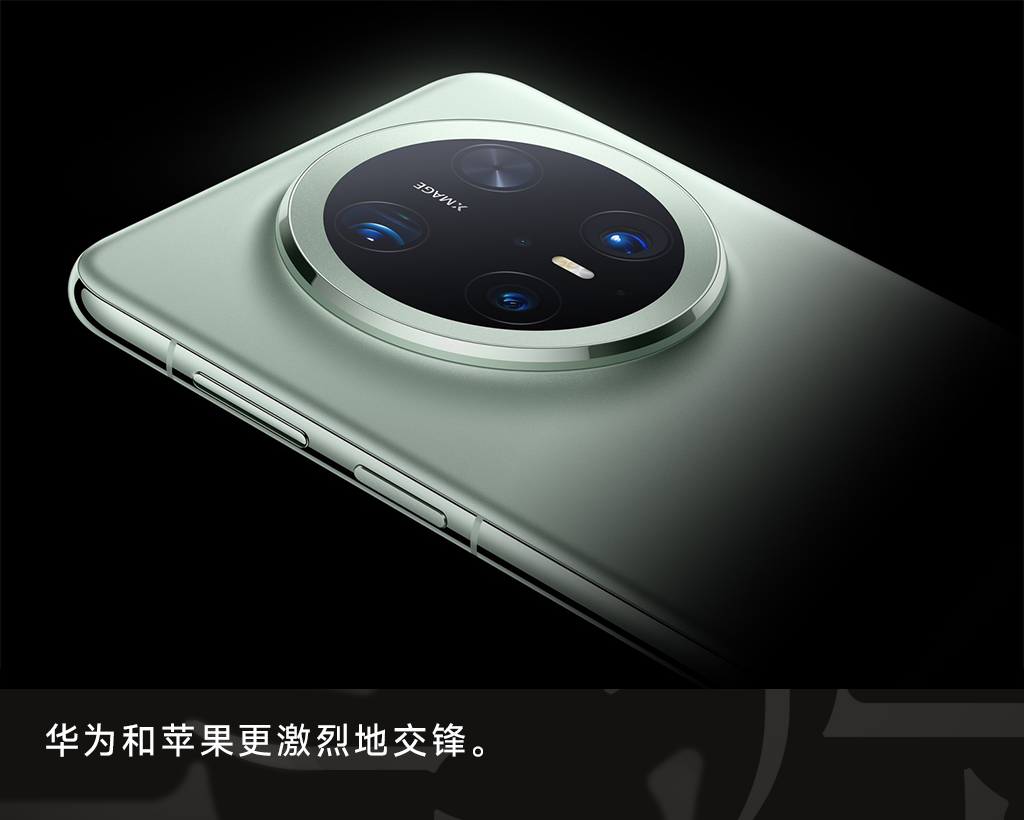
Author|Xue Xingxing
Editor|Wang Bin
Cover|Huawei
On November 26, the day after Cook's third visit to China this year, Huawei launched its latest flagship smartphone series, the Mate 70, in Shenzhen.
Similar to last year, Huawei did not dwell much on chip performance, with Yu Chengdong only emphasizing that the overall performance of the phone had improved by 40% compared to the previous generation. However, this is no longer the focus of consumers' attention; the mere fact that Huawei is returning to the smartphone market is enough to prompt consumers to place orders.
'Copying has no future. Huawei Mate has always been imitated but never surpassed. The only thing that can surpass Mate is Huawei Mate itself.' Yu Chengdong said at the beginning of yesterday's press conference. This remark can be seen as Yu Chengdong's response to Huawei's absence from China's high-end smartphone market in recent years.
According to data provided by IDC, in the first three quarters of this year, Huawei has captured over 30% of the market share in China's high-end smartphone market, which includes phones priced above $600. Analysts are generally optimistic that this share will continue to increase, putting more pressure on Apple domestically. Apple currently occupies about 52% of the high-end smartphone market, down about 10 percentage points from last year, while Huawei has increased by about 10 percentage points compared to last year.
The iPhone 16 series is the biggest upgrade in the past few years, but the biggest upgrade, Apple Intelligence, is still not available in China. This year, the iPhone 16 series started price reductions and promotions earlier than previous years. Overseas media have continuously published commentary articles exploring why Chinese people have lost interest in the iPhone. There are many reasons, but the conclusion seems to be the same: 'Apple's golden age in China has ended,' as quoted from an interviewee in The New York Times.
Cook visited China the day before the launch of the Huawei Mate 70 series. This was his third visit this year and approximately his 21st visit historically.
Unlike the confrontation in September, this 'collision' with Huawei seems to be coincidental. Cook's visit to China this time was to attend the second China International Supply Chain Promotion Expo (Chain Expo).
This was Cook's first time attending the Chain Expo, and he emphasized the importance of Chinese partners in media interviews, stating, 'Without Chinese partners, Apple would not have achieved today's success.' The trending topic on Weibo was, 'Cook says without China, there would be no Apple today.'
Apple has been an exhibitor at the Chain Expo since last year. Multiple media reports have emphasized that the most eye-catching slogan on Apple's booth was:
'Among Apple's 200 major suppliers, 151 are based in China.'
01|Super Strong and Those Four Words
Since last year, Yu Chengdong has stopped using the iconic slogan 'far ahead' in public. At this year's Huawei Mate event, he used the phrase 'super strong' to describe Huawei's smartphone leadership.
Just like the unmentioned chips in the Huawei Mate 70, people are all aware of these four words. After Yu Chengdong took the stage, people kept shouting 'far ahead' or simply 'those four words,' loud enough to be picked up by the live stream. 'The Mate 70 definitely lives up to those four words,' Yu Chengdong said on stage, as a response to the enthusiasm from the audience.
This year's Huawei Mate 70 series is similar to previous years, with a total of four versions priced from 5,499 yuan to 9,499 yuan. The Mate 70 RS Master Edition and the foldable Mate X6 are priced up to 12,999 yuan to 16,999 yuan. The main sales model, the Mate 70 Pro series, is priced almost on par with the iPhone 16 Pro series.
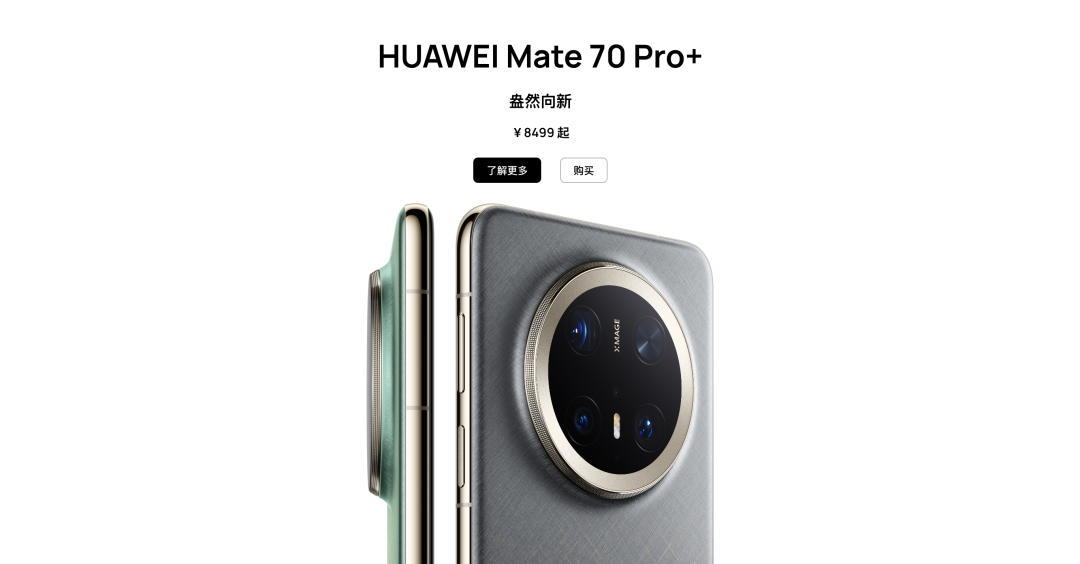
Huawei Mate 70 Pro+
Similar to Apple, Huawei may be the only smartphone manufacturer that does not need to emphasize phone specifications too much during its press conferences. Yu Chengdong introduced the Mate 70 series in about half an hour, which can be considered brief compared to many dazzling domestic flagship phone launches.
This confidence likely stems from brand influence. Over the past few years, Huawei's Mate series has been almost the only domestic flagship smartphone that can compete with the iPhone in the domestic market. Even though many domestic smartphone manufacturers have made efforts to enter the high-end market, none have achieved the same dominance as Huawei's Mate series.
In 2020, when the Huawei Mate 40 series was launched, Huawei had been the top smartphone vendor in China for three consecutive years. Apple's market share in China that year was 10%, ranking fifth. Two years later, Apple's market share rebounded to 22%. In October of that year, Apple reported in its fiscal year report ending in September 2022 that revenue from Greater China reached a record high of $74 billion. In the following two years, Apple has never reached that figure again.
The most significant decline was in fiscal year 2024, when Apple's revenue from Greater China fell to $67 billion, the only region to experience a decline globally. In August last year, Huawei quietly launched the Mate 60 series on its official website, announcing its return to the smartphone market.
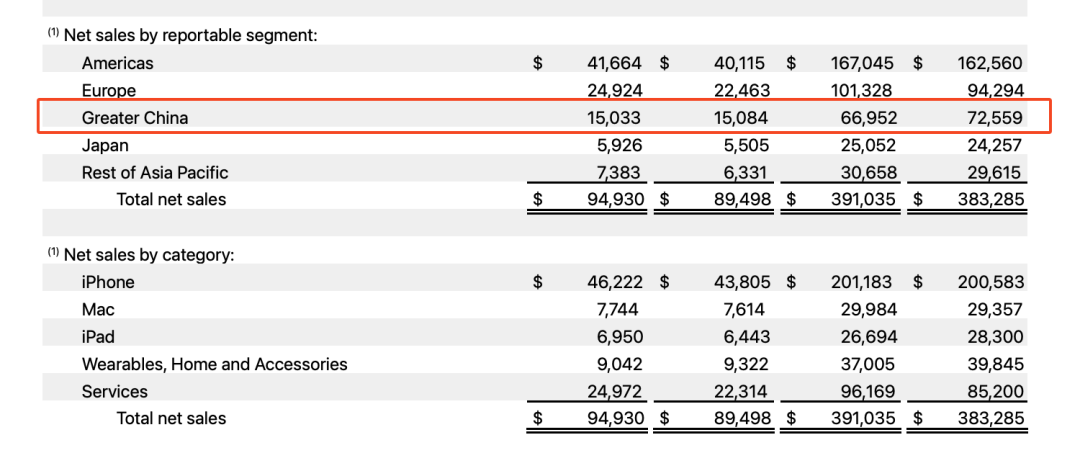
Apple Fiscal Year 2024 Financial Report
By the third quarter of this year, according to Canalys data, Huawei had captured 16% of the domestic smartphone market share, ranking second. Apple's shipments declined by 6%, reclaiming the fifth spot, partially due to larger price reductions and promotions during the summer vacation and 618 shopping festival.
However, compared to last year, Huawei's Mate series was launched three months later this year, and outside observers predict this will affect Huawei's sales. In the first half of this year, after the hype around the Huawei Mate 60 series subsided, the subsequently launched Pura 70 series failed to replicate the popularity of the Mate 60, leading to price reductions and promotions starting from the middle of the year.
Analysts predict that the Mate 70 will continue the success of the Mate series, with shipments expected to exceed 10 million units over its lifecycle. Some previous reports stated that Huawei required its supply chain to increase production capacity, with initial inventory of the Mate 70 series reportedly increasing by at least one-third compared to the Mate 60 series.
02|HarmonyOS and Apple Intelligence
Perhaps due to the previously dedicated HarmonyOS NEXT conference, the Huawei Mate press conference barely mentioned anything about the operating system. However, the system is one of the most significant changes in this generation of Huawei Mate series.
Huawei officially launched its self-developed operating system, HarmonyOS, in 2019, but previous generations still retained Android code and were compatible with Android applications. This year, Huawei began internal testing of the native HarmonyOS NEXT, which is no longer compatible with Android applications and is starting to establish a closed application ecosystem similar to Apple's, claiming to have become the world's third-largest mobile operating system. In the first quarter of this year, HarmonyOS surpassed iOS to become the second-largest mobile operating system in China.
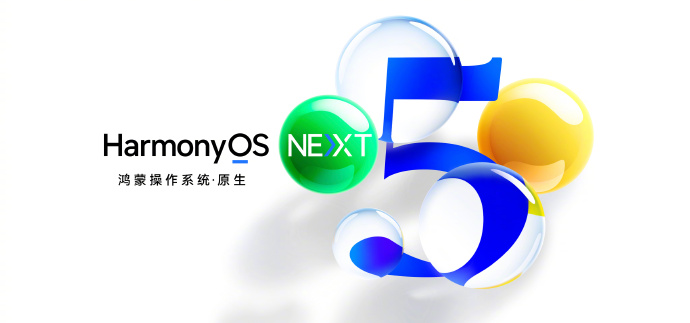
HarmonyOS NEXT
However, the current native HarmonyOS is still in its early stages of development, with most hastily launched applications having reduced functionality compared to other systems. Some national-level applications, such as WeChat, are still in the testing phase. According to previous Huawei press conferences, Huawei currently has 15,000 native applications and meta-services completed, and they believe that 100,000 applications are needed to meet consumer demand.
This may be why the latest Mate 70 series still offers two system versions. Yu Chengdong emphasized at the press conference that the Mate 70 series can be upgraded to HarmonyOS NEXT 'out of the box,' but it still ships with the compatible Android version of HarmonyOS 4.3.
Yu Chengdong said that a large number of applications are being iterated and updated every month, week, and even day, and it is expected that the experience of the native HarmonyOS application ecosystem will become more mature and complete in two to three months. He emphasized that all phones and tablets launched by Huawei next year will be equipped with native HarmonyOS.
In other words, many of the powerful AI intelligence and privacy protection features demonstrated by Huawei at the press conference can only be experienced on the native HarmonyOS, and a more complete system will not be available until next year.
This gives Apple some breathing room as Apple Intelligence has not yet been implemented in China. Over the past two months, AI has become the most critical aspect in the flagship smartphone products Intensive release by domestic smartphone manufacturers, with some manufacturers, such as OPPO, even bluntly stating their intention to compete for iPhone users.
Apple is at a critical juncture of transforming its entire product line to AI, for which they are willing to equip even their basic models with higher performance and memory. For example, the basic version of the iPhone 16 also uses the latest A17 chip, and the starting memory of the Mac product line has been upgraded from 8GB to 16GB. Cook believes that the arrival of Apple Intelligence will attract more iPhone users to upgrade.
However, this attraction has not yet taken effect in China. Cook's second visit to China this year coincided with Apple's September press conference, and domestic media were particularly concerned about the progress of Apple Intelligence's implementation in China. He did not provide a definitive answer, only stating that they were working hard to move forward.
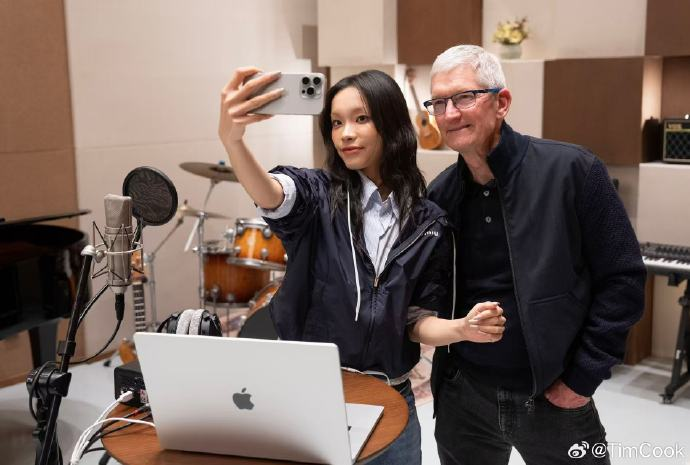
Cook's second visit to China this October with singer Liu Boxin
The Financial Times reported that Apple Intelligence's entry into China still faces challenges, and they are already in contact with many domestic manufacturers, including Baidu, ByteDance, and Kimi. Samik Chatterjee, an analyst at JPMorgan Chase, said that although Apple may partner with Baidu or other companies to implement Apple Intelligence, the final implementation will not occur until the second half of 2025 or later.
Cook is still showcasing his diplomatic skills. He has visited China approximately 21 times in the past decade, making him one of the most frequent visitors among CEOs of multinational corporations.
Starting this year, his visits to China have become more frequent, with three visits already this year. In addition to his annual routine of visiting stores, emphasizing education, and meeting developers, he has started to place more emphasis on the importance of China's supply chain and has frequently shown goodwill towards China – previously, Apple had attempted to reduce its dependence on China's supply chain.
During his previous visit, relevant officials from the Ministry of Industry and Information Technology met with him. According to the Ministry of Industry and Information Technology News, 'Both sides exchanged views on Apple's development in China, cyber data security, cloud services, and other issues.'








